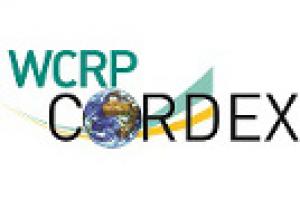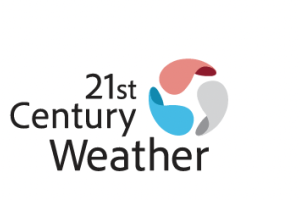
My Expertise
Climate hazards and how they are changing with climate change. Water cycle processes over land, regional (or watershed) scale and study processes including river flow, evaporation/transpiration, water vapour transport and precipitation.
Keywords
Fields of Research (FoR)
Climate change science, Climate change processes, Climate change impacts and adaptation, Climatology, Surface water hydrologySEO tags
Biography
BIOGRAPHY
Description
I am a Professor at the Climate Change Research Centre at the University of New South Wales. My research is focused on understanding regional climate phenomena including climate hazards. My work improves how we model these phenomena in regional climate models, and using these models to project how they will change in a future warmer climate. I also investigate general issues of water cycle processes over land, and how...view more
BIOGRAPHY
Description
I am a Professor at the Climate Change Research Centre at the University of New South Wales. My research is focused on understanding regional climate phenomena including climate hazards. My work improves how we model these phenomena in regional climate models, and using these models to project how they will change in a future warmer climate. I also investigate general issues of water cycle processes over land, and how we can change them, largely through changes in land use and changes in climate. I focus at the regional (or watershed) scale and study processes including river flow, evaporation/transpiration, water vapour transport and precipitation.
The main tools of my research are models including regional climate models, land surface and hydrology models. Of course modelling needs to be informed by data and along with in-situ data, I use satellite data and weather radars.
Professional affiliations and service positions
I am Science Advisory Team member for the World Climate Research Programmes (WCRP) CORDEX program, and coordinator of the AustralAsia CORDEX domain, a major program of the WCRP.
I am section editor for the journal PLOS Climate.
I am the Post-Graduate Coordinator for Admissions in the Climate Change Research Centre.
My Qualifications
- PhD in Environmental Management (ANU, 2001)
- B.Math (Hons) (University of Newcastle, 1996)
- B. Science (Physics) (University of Newcastle, 1995)
My Awards
2021 Awarded the Biennial Medal of the Modelling and Simulation Society of Australia and New Zealand career award for outstanding contributions to modelling and simulation over a sustained period of time.
2021 Elected Fellow of the Modelling and Simulation Society of Australia and New Zealand
2021 Elected Fellow of the Royal Society of New South Wales
2017 Priestley Medal. Australian Meteorology and Oceanography (AMOS) mid-career award.
2017 Green Globe Sustainability Champion Award Finalist
2015 Modelling and Simulation Society of Australia and New Zealand President’s mid-career plenary lecture.
2013 Awarded a visiting fellowship for senior international scientists by the Chinese Academy of Sciences.
2012 Australian Research Council Future Fellowship
2008 Australian Agricultural Industries Young Innovators and Scientists Award given by the Australian federal department of by the Department of Agriculture, Fisheries and Forestry
2007 Australian Research Council Australian Research Fellowship
My Research Activities
My Research Goals
- Understanding climate hazards and how they will change due to climate change.
- Understanding the water cycle at regional scales
- Quantifying the strength of land-atmosphere interaction
- Producing robust regional climate projections
- Investigation of climate change impacts on various human and natural systems
- Quantifying climate change related risks
- Improve our understanding and modelling of unusual bushfire behaviour
My Research in Detail
My group currently includes multiple post-doctoral researchers and PhD students, along with collaborations with several faculty members and co-supervision of other post-docs and PhD students. The research is centred around issues in regional climate and water resources. I have a strong background in mathematics and hence much of my research has involved development and application of modelling tools. My current research involves questions about the regional impacts of changes in climate - both past and future - and the strength of the interaction between the land surface and atmosphere. My main interests include modeling regional climate, interdisciplinary studies of water resource issues, changing climate impacts on water quantity and changing land use impacts on water. Several of the main research projects that have been undertaken within the group are outlined below.
CORDEX-AustralAsia
CORDEX (Coordinated Regional Climate Downscaling Experiment) is an international project providing global coordination of Regional Climate Downscaling for improved regional climate change adaptation and impact assessment. I am lead of the CORDEX-AustralAsia domain. This project is focused on downscaling CMIP5 Global Climate Model simulations and, along with NARCliM, will provide the most comprehensive regional scale climate projections to date.
NSW / ACT Regional Climate Modelling (NARCliM) project
NARCliM is producing an ensemble of regional climate projections over south-east Australia in collaboration with the NSW government Office of Environment and Heritage. These simulations will be used to investigate regional climate processes and their future changes, as well as facilitating climate change impacts and adaptation research.
East Coast Low project
This project is part of the Eastern Seaboard Climate Change Initiative (ESCCI) sponsored by the NSW government Office of Environment and Heritage. The focus of this project is to use relatively high resolution (10km) regional climate model simulations to investigate how the frequency and intensity of East Coast Lows may change in the future due to global warming. These storm systems often develop quickly and can remain relatively small spatially, making them difficult for global models to capture. The project will also attempt to quantify the influence of local topography and sea surface temperatures on the East Coast Lows.
Sub-daily precipitation extremes
This project is an international collaboration initiated by the GEWEX Hydroclimate Panel. Several studies have used local data to show that sub-daily precipitation extremes can be intensifying even if at daily and longer time-scales this is not the case. This project is aiming to bring together a large dataset of high quality sub-daily precipitation from around the globe. Trends in this sub-daily precipitation can then be investigated globally including questions around mechanistic causes and model capabilities.
Extreme bushfire dynamics
This project attempts to understand the physical processes behind some of the most unusual and extreme bushfire events. The main tool for this work is a coupled atmosphere-fire model which facilitates the dynamic interaction of the atmosphere, fire and the terrain.
Murray-Darling Basin Project
This project focuses on land-atmosphere interactions in the Murray-Darling Basin. I am attempting to answer questions concerning the effects of land-atmosphere feedbacks on precipitation in the watershed. What is the extent of precipitation recylcing in the MDB? Where is the land-atmosphere interaction strongest?
The major tool for this study is a regional climate model. In this case I am using a version of the Weather Research and Forecasting (WRF) model.
This work contributes to the Australian Energy and Water Exchanges initiative (OzEWEX).
My Research Supervision
Supervision keywords
Areas of supervision
Ph.D. projects all involve analysis of large observational and model datasets, often involve running model experiments (usually regional climate models), and may involve some model development. Here are some possible Ph.D. topics, other topics can also be discussed.
- Development of a high resolution Planetary Boundary Layer (PBL) parametrization within a lower resolution atmospheric model. Atmospheric motion in the PBL often occurs on scales that are much smaller than those that dominate in the free troposphere. While it is too computationally intensive to have higher resolution throughout the atmosphere, it is still desirable to have it within the PBL. This project will develop and test the coupling between a high resolution PBL and low resolution atmosphere, and use it to model phenomena such as sea breezes.
- The role of tropical cyclones and the South Pacific Convergence Zone (SPCZ) in future precipitation over the South Pacific Islands. Recent studies using global models have found significant changes to the SPCZ under future climate conditions. This project will investigate this using higher resolution regional climate simulations and explicitly investigate the relationship between tropical cyclones and the SPCZ.
- Land-atmosphere coupling: can the metrics be trusted? A number of different measures have been introduced to measure the strength of the coupling between the land and atmosphere. How do these measure compare? What do they really tell us? Do they tell us about a general property of the system or are they specific only to the data used to calculate them?
- How has the expansion of Sydney's urban area affected the water supply for the city? The water supply reservoirs for Sydney are downwind of most of the weather systems that deliver the precipitation. How has the growing urban heat island and pollution source affected the production of precipitation over Sydney's reservoirs?
- The behaviour of large bushfires is strongly affected by land-vegetation-fire-atmosphere coupling. In fact, some atypical fire behaviour such as fire channelling and pyrocumulus events require this coupling. This project will develop the WRF-fire model to include phenomena such as the release of embers and spotting. The new model will be used to investigate these atypical fire phenomena.
- Using back-trajectory techniques to identify the water vapour source regions for rain falling in the Murray-Darling basin. How are these source regions affected by assumptions in the back-trajectory technique? How much rain is recycled within the basin?
Honours projects are designed to give you a taste of climate research and build your skills in data analysis. They all involve analyzing datasets using programming languages like Matlab, R or NCL. Topics generally include analysis of both model output and observational data.
Possible topics:
- What are the projected trends in climate for south-east Australia?
- How is the South Pacific Convergence Zone projected to change in the future?
- How will global warming impact the water resources of south-east Australia?
- Will bushfires be more severe in the future due to global warming?
- How do large burned areas in the Australian Snowy Mountains impact the following winters snow cover?
Advice for prospective students
Doing research is exciting business – discovering something new always is. But it also includes periods of frustration and little progress. To get through these times you need to be excited by your research topic and get along well with your supervisor and other members of the research team. So be sure to talk to different potential supervisors, their students and postdocs before choosing your topic.
Currently supervising
- Water vapour source region influences on Australian drought
- Statistical Methods for Climate Model Ensembles
- How will climate change effect thunderstorm characteristics?
- How intense will design storms become with rising temperatures?
- The impact of climate change on renewable energy production
- Climate change impacts on short duration rainfall extremes
My Teaching
I teach CLIM2002 - Risks and Impacts of a Changing Climate
The course aims to provide a fundamental understanding of climate change impacts and risks. It will inform students about risks within their own speciality as well as other sectors and to engage them in an emerging issue that will be critical to their long-term employability in business, industry and government.
This course will present the essentials of understanding and managing climate risk. Material will be presented in a manner that is accessible to students from all backgrounds and disciplines, demonstrating how climate risk may manifest as a challenge in a wide range of sectors (e.g., built environment, engineering, business, health, law, economics and policy). We aim to provide a fundamental understanding that will inform students within their own speciality and to engage them in an emerging issue that will be critical to their long-term employability in business, industry or government.
The course material is presented entirely online giving you flexibility in when to engage with the course (noting deadlines for assessment tasks). There are also online practicals which provide experience dealing with climate projection data to answer questions about future risk.



